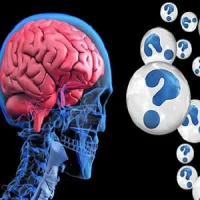Artificial intelligence technology is evolving quickly. An increasing number of hospitals now use AI and machine learning for more efficient care management. With powerful analytics tools, providers can gauge capacity or pinpoint the slack in the system.
In addition, AI-based virtual assistants are helping more patients to stay fit and healthy. And expect these tools to also have "emotional intelligence" capabilities – i.e., can pick up on subtle cues in speech, inflection or gesture to assess a person's mood and feelings. For example, a Tel Aviv-based startup called Beyond Verbal is working on analytics tools that could work with Alexa et al. to gain insight into behavioural and vocal patterns.
"In the not so far future, our aim is to add vocal biomarker analysis to our feature set enabling virtual private assistants to analyse your voice for specific health conditions," said the company's CEO Yuval Mor in June.
In the coming years, analysts say, it may be patients themselves who could be spending the most time with the AI platforms. That's where emotional intelligence begins to take on more importance, they point out.
"What gets really fascinating – we have yet to see it, but we're seeing discussions of it – is potential uses around the quality of care," said Anthony Chambers, director in the life sciences practice at Chicago-based consultancy West Monroe Partners. "That remains an untapped potential where the promise of emotional intelligence, in combination with AI, could play out."
AI platforms would be useful in conducting clinical trials. Natural language processing tools, for instance, could help with gathering data and predicting outcomes. That's especially useful given how stressful clinical trials can be on the patient.
"If we could use an interactive bot, where the patient then has a point of conversation via smartphone or something, that could be a game changer because of the challenge of clinical trials being so stressful on the population, and the expense of running the trials," Chambers said.
He also said that more and more providers are starting to "dip their toes into automating the bookends of the patient journey" – intake and discharge.
"Being able to potentially monitor the intake with a human in the room, but also an Alexa-type unit listening to the conversation and also hearing the stress or anger or fear in a patient's voice, that may throw up real-time prompts that the human can then put forward," Chambers said. "That use case has been kicked around, a way to support the intake process.
However, there are some big questions that need to be answered as the AI/EI approach starts playing a role in the patient journey. "I think the first question hospitals or clinicians are going to have to decide is how will it support that care journey," he said.
Will it displace human interaction, or just augment it? And if it does displace it, where is it going to support the patient, and how are you going to use that communication?
Source: Healthcare IT News
Image Credit: Pixabay
Latest Articles
machine learning, Artificial Intelligence, EKGs, analytics tools
Artificial intelligence technology is evolving quickly. An increasing number of hospitals now use AI and machine learning for more efficient care management. With powerful analytics tools, providers can gauge capacity or pinpoint the slack in the system.










